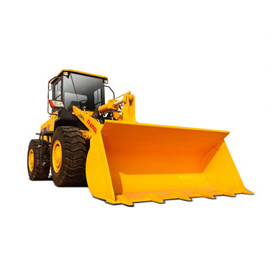tensile strength testing equipment
Tensile Strength Testing Equipment Essential Tools for Material Evaluation
Tensile strength testing is a critical process in material science, engineering, and manufacturing, aimed at determining the strength and ductility of materials when subjected to axial loads. This testing provides vital information about the material's behavior under tensile stress, which is crucial for safety, quality control, and performance evaluation in various applications. To perform this testing accurately, a range of specialized equipment is required.
Understanding Tensile Strength Testing
Tensile strength refers to the maximum stress a material can withstand while being stretched or pulled before failing or breaking. The testing process typically involves gripping a specimen of the material in a testing machine and applying a tensile load until the material fractures. The results are used to calculate parameters such as yield strength, ultimate tensile strength, and elongation percentage, which are critical for determining a material's suitability for specific applications.
Types of Tensile Testing Equipment
1. Universal Testing Machines (UTMs) Universal Testing Machines are the most common equipment used for tensile strength testing. These machines can perform a variety of tests, including tension, compression, and bending. A UTM consists of a loading frame, a testing fixture, and a data acquisition system. It allows for precise control of the load applied to the specimen and can measure the resulting displacement, making it possible to obtain accurate tensile strength readings.
2. Grips and Fixtures The proper gripping system is crucial to ensure that the specimen is held securely during the test. Various types of grips, such as wedge grips, hydraulic grips, or pneumatic grips, are available. The choice of grip depends on the material type, geometry, and testing requirements. Fixtures must be designed to minimize stress concentrations and ensure uniform load distribution.
3. Extensometers Extensometers are devices used to measure the elongation of the specimen during the tensile test. They provide important data on how a material deforms under stress. There are several types of extensometers, including mechanical, optical, and digital models, each offering different levels of accuracy and measurement ranges.
tensile strength testing equipment

4. Data Acquisition Systems Modern tensile testing setups often incorporate advanced data acquisition systems that record real-time data during the test. These systems can capture information about the applied load, elongation, and stress-strain behavior, enabling detailed analysis and reporting. The data can be analyzed using software algorithms to provide insights into the material properties.
Importance of Tensile Strength Testing Equipment
The use of appropriate tensile strength testing equipment is vital for several reasons
- Quality Control In manufacturing, tensile testing is essential for quality assurance. It ensures that materials meet the required specifications and standards, helping to prevent failures in final products.
- Material Research and Development Engineers and scientists rely on tensile testing to investigate new materials, assess their performance, and develop improved formulations for various applications.
- Safety Considerations Tensile strength testing plays a crucial role in industries such as aerospace, automotive, and construction, where material failure can lead to catastrophic consequences. Understanding the tensile properties of materials helps ensure safe and reliable designs.
Conclusion
In summary, tensile strength testing equipment is indispensable for evaluating material performance and ensuring safety and reliability in various applications. With advancements in technology, the precision and capability of testing machines continue to improve, allowing for more sophisticated material analyses. As industries progress and new materials are developed, the importance of accurate tensile testing will only grow, underscoring the need for reliable and effective testing equipment.
-
The Role of Tensile Force Testers in Quality Control and Material Science
NewsAug.01,2025
-
Maintenance and Safety Tips for Aging Ovens
NewsAug.01,2025
-
Density Balance in Forensic Science
NewsAug.01,2025
-
Advanced Optical Measurement Technologies
NewsAug.01,2025
-
A Buyer’s Guide to Tensile Test Machines
NewsAug.01,2025
-
Why the Conductor Resistance Constant Temperature Measurement Machine Redefines Precision
NewsJun.20,2025
 Copyright © 2025 Hebei Fangyuan Instrument & Equipment Co.,Ltd. All Rights Reserved. Sitemap | Privacy Policy
Copyright © 2025 Hebei Fangyuan Instrument & Equipment Co.,Ltd. All Rights Reserved. Sitemap | Privacy Policy
